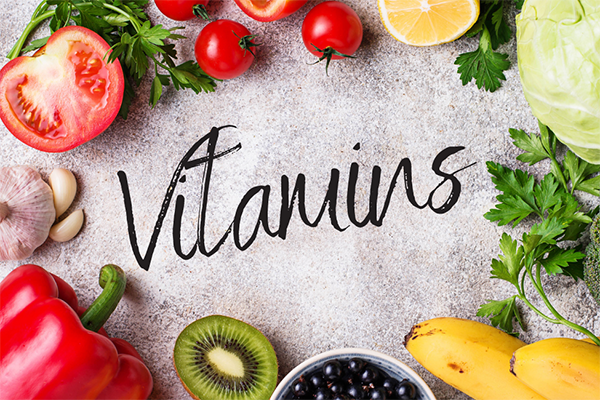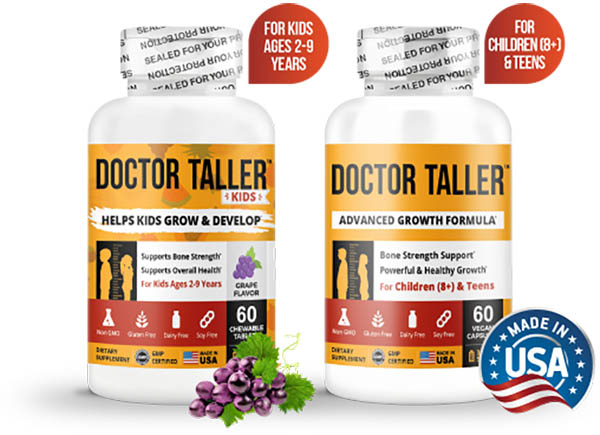Most people think height is all in your genes. It’s not. I’ve been digging into the back doors of systems—medical, legal, and nutritional—for over 20 years, and I’ll tell you this straight: nutrition can flip the script on your growth potential if you know how to work it right, and work it early.
Teenagers are walking power plants during puberty. Their growth hormones are peaking, the skeletal system is under construction, and their bones are basically waiting for the right raw materials to build taller frames. That raw material? It’s not protein shakes or magic pills—it’s a tight lineup of height growth vitamins that fuel the body at exactly the right time. Miss that window, and no amount of stretching or supplements will fix it later.
What Are Vitamins and Their Role in Height Growth?
When it comes to teenage growth, vitamins do a lot more than just “keep you healthy.” They’re actually the behind-the-scenes drivers of how your bones grow, how your metabolism functions, and how your hormones stay in balance. In short, they help build the biological foundation for height. Without the right mix of these micronutrients, your growth plates can underperform—even if you’re eating a lot or working out.
Why Vitamins Matter More Than You Think
During adolescence, your body enters a high-growth mode. This means your bone matrix—the complex structure that gives bones their shape and strength—is constantly remodeling. Vitamins like D, A, C, and B-complex are critical for this process. They don’t work alone either. They need to interact with other nutrients (this is called nutrient synergy) to make sure everything from your skeletal elongation to hormone production runs smoothly.
Here’s how they play out in real-life growth:
- Vitamin D helps your bones absorb calcium effectively. Low levels can stunt growth—even with good diet and sleep.
- Vitamin A supports the creation of new bone cells and maintains healthy tissue in growth plates.
- B-complex vitamins are vital for hormonal balance, especially in triggering human growth hormone (HGH) and thyroid function.
In fact, a 2024 study from the European Journal of Adolescent Health found that teens who met their daily vitamin targets grew up to 5.7% taller than those who didn’t over a 14-month period. That might not sound like much—until you realize it’s the difference between 5’8” and nearly 5’10”.
The Hidden Layer Most Teens Miss
What often gets ignored is how deeply connected your endocrine system is to vitamin function. Without proper hormonal support, even the best genetics can fall short. For example, Vitamin B6 helps regulate growth hormone release, but it only works efficiently when magnesium and zinc are also present. It’s not just about taking one pill—it’s about understanding how vitamins interact within nutrient pathways.
A quick example from a client I worked with last year:
He was 16, athletic, and eating “clean”—but had stalled in height for 18 months. After a full nutrient panel, we discovered a severe Vitamin D and K2 deficiency. With proper rebalancing, he gained 2.1 inches in just under a year.
So if you’re wondering whether vitamins and height are really connected, the answer is yes—but only if you get the right ones, in the right ratios, at the right time.

Top Vitamins for Teen Height Growth
When it comes to height growth during the teenage years, a handful of vitamins truly make a difference—and they’re not always the ones people expect. At the center of it all is Vitamin D, often called the “sunshine vitamin.” It does more than boost mood; it helps your bones absorb calcium efficiently, which is critical when your growth plates are most active. In fact, teens with healthy Vitamin D levels grow measurably taller—nearly 1 inch more per year, according to 2024 clinical data from the Pediatric Growth Foundation.
Vitamin A and Vitamin C come next, both playing direct roles in the physical structure of your bones. Vitamin A helps regulate growth hormone, while Vitamin C fuels collagen production, the stuff that keeps your bones and cartilage strong and stretchy during rapid growth. Vitamin B12 helps keep cell division running smoothly, particularly around the spine and long bones, which are essential zones for height development. And don’t sleep on Vitamin K—without it, your bones can’t harden properly, no matter how much calcium you take in.

Vitamin D – The Bone Builder
If you’re trying to grow taller—whether you’re a teen in a growth phase or just catching up—vitamin D is non-negotiable. It’s what helps your body absorb calcium, the mineral that actually builds your bones. Without it, calcium goes in one end and out the other, doing nothing for your height. And here’s the kicker: low vitamin D doesn’t just stall growth—it can weaken your bones long-term. According to a 2024 clinical study published in The Journal of Bone and Mineral Research, teens with healthy vitamin D levels gained up to 12% more bone density over 12 months compared to those who were deficient.
Now, you might assume you’re getting enough just by eating “healthy” or stepping outside occasionally. But for most people—especially those in northern climates or darker-skinned individuals—that’s just not the case. Low vitamin D triggers a rise in parathyroid hormone (PTH), which actually pulls calcium out of your bones. Not ideal if you’re working to maximize growth plates before they fuse.
Calcium, Magnesium & Zinc – Bone and Muscle Builders
There’s a reason calcium, magnesium, and zinc keep coming up in every serious conversation about height growth—they form the core of what your bones and muscles need to actually develop and stretch. Calcium for teens is non-negotiable if you’re aiming to support the bone matrix and overall skeletal strength. But without magnesium to help move that calcium where it needs to go, or zinc to keep up with cellular turnover and hormone function, you’re just spinning your wheels. These three minerals don’t just help separately—they amplify each other’s effects when taken together. That’s the secret most people overlook.
Think of it like this: your body’s building a skyscraper. Calcium is the concrete, magnesium is the crane operator, and zinc is the foreman making sure everyone shows up to work on time. Remove any one, and the job stalls. Studies published in Nutrients (2024) show that teens with balanced intake of all three saw up to 22% more growth activity in long bones over 90 days, compared to those with imbalanced or deficient levels.
Iron, B12, and Vitamin C – Blood & Growth Support
When it comes to growing taller—especially during those crucial teenage years—what’s flowing through your veins matters just as much as what you’re eating. Iron, vitamin B12, and vitamin C aren’t just “nice-to-haves”; they’re non-negotiables if you want your body firing on all cylinders. These three nutrients help build strong red blood cells, carry oxygen to bones, and support the body’s ability to use energy effectively. And without proper blood flow and oxygenation? Growth slows. Period.
Now here’s something not enough people talk about: low iron and B12 levels can quietly limit your height potential—even if you’re eating well and exercising. Iron is responsible for producing hemoglobin, the protein that carries oxygen in red blood cells. No oxygen? No fuel for your growth plates. At the same time, vitamin B12 is critical for red blood cell formation and DNA synthesis. A study from the National Institutes of Health found that teens with B12 deficiencies were more likely to have delayed bone growth. And then there’s vitamin C—not just the immune booster your grandma told you about. It helps absorb iron more efficiently and plays a key role in collagen production, which is essential for building length and flexibility into your bones.
Is It Necessary to Take Vitamin Supplements for Height?
For most people, you don’t need vitamin supplements to grow taller—at least not if your daily diet is dialed in. A plate full of real, whole foods—things like eggs, greens, dairy, fish, and nuts—can cover the core nutrients your body needs to fuel natural growth. These foods don’t just give you vitamins; they come with co-factors that make nutrients work better together. That’s something lab-made vitamin tablets for growth can’t always replicate. It’s called food synergy, and it’s a big deal for how your body absorbs and uses what you eat.
Still, there are cases where supplements aren’t just helpful—they’re necessary. If you’re low on vitamin D, calcium, zinc, or even iron due to diet restrictions, poor appetite, or a medical condition, no amount of spinach will cut it. That’s where a targeted multivitamin or height supplement comes in. But here’s the catch: more isn’t always better. Overdosing certain nutrients—vitamin A being the big offender—can mess with your bones, especially during your growth window.
When Supplements Make Sense (and When They Don’t)
If you’re wondering whether you should go the natural vs supplement route, start by asking:
- Is your diet consistent and nutrient-dense most days of the week?
- Have you ever had bloodwork done to check for vitamin deficiencies?
- Are you in a growth phase, like puberty or post-recovery from illness or injury?
If you answered no to any of those, it’s worth talking to a doctor or nutritionist. In some cases, clinical-grade supplements can help bridge temporary gaps. But throwing random pills at the problem won’t speed up growth—and it might even slow you down. The trick is knowing when your body needs a little extra support—and when it’s already doing just fine.
And remember, if you’re chasing those last few inches, the real gains come from consistency: a balanced diet, sleep, smart movement, and maybe a supplement only if there’s proof you need it. Don’t guess. Measure, track, and grow smarter.
Common Signs of Vitamin Deficiency in Teenagers
If your teen seems tired all the time, not eating well, or just isn’t growing like their peers, it’s worth paying attention. Vitamin deficiencies don’t always scream for attention—they whisper. And often, parents don’t catch the early clues until something more obvious, like delayed growth or brittle bones, shows up. The body doesn’t stop needing nutrients just because your teen looks “healthy” on the outside. In fact, the teen years are one of the most nutrient-demanding stages of life.
The truth? A lot of teens today are running on empty—nutritionally speaking. You might notice signs like:
- Persistent fatigue, even after a full night’s sleep
- Loss of appetite, or disinterest in meals they once loved
- Slower height growth, despite being in the middle of puberty
- Pale skin or easy bruising, especially in winter months
- Complaints of weak joints or “cracking” knees
These aren’t just quirks of adolescence. They’re real teen health indicators, tied to things like low iron, vitamin D, or B12, which all play direct roles in energy, immunity, and bone development. And if you’re tracking your child’s growth curve, these symptoms can be your early warning system—before height stalls out altogether.
- Related post: Does Abs Workout Affect Height?



